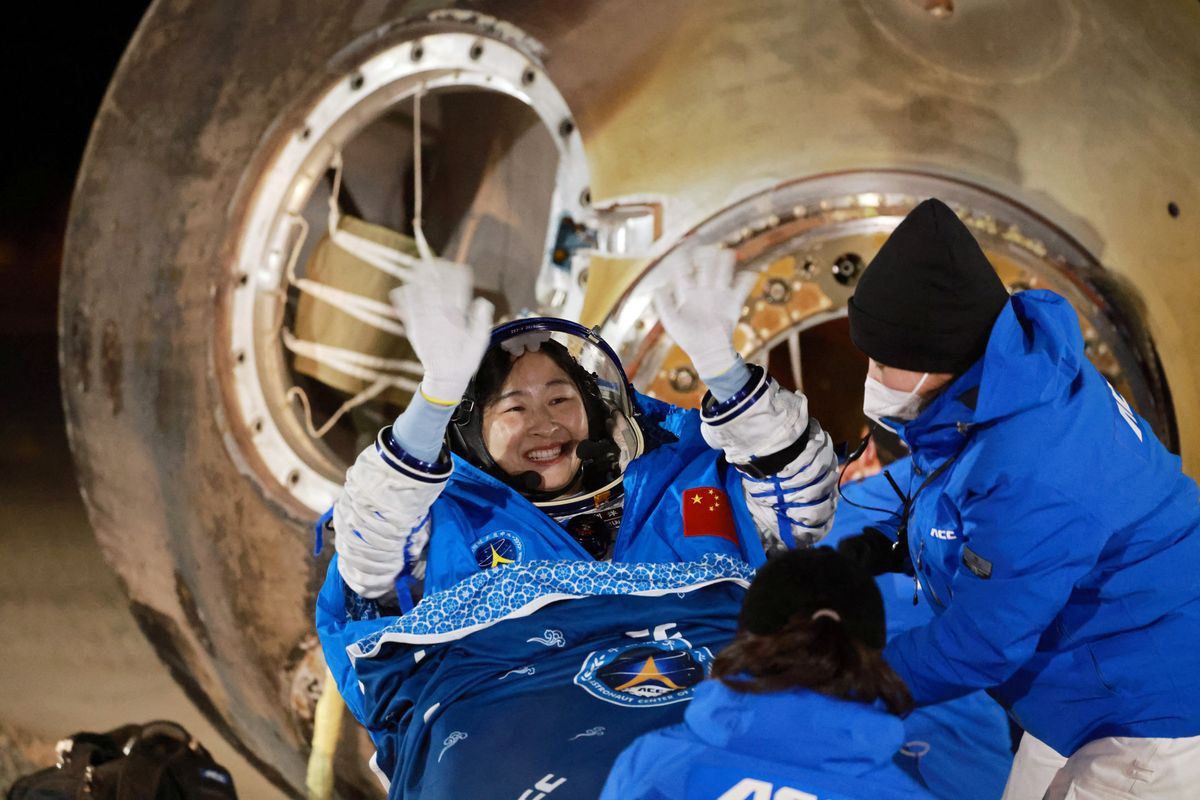Three Chinese astronauts have completed their six-month long Shenzhou-14 mission
The Tiangong space station began construction last year, representing a milestone of China's ambitious space program over three decades.

A few minutes every morning is all you need.
Stay up to date on the world's Headlines and Human Stories. It's fun, it's factual, it's fluff-free.
A 2011 US amendment pretty much excluded China from the International Space Station (ISS). It essentially prohibited NASA from collaborating with the Chinese space program (without special permission from Congress) on national security grounds. So the world's second-largest economy has been launching space missions to advance its space power and build its own station, Tiangong. In 2003, China became the third country to send astronauts into orbit on its own after the former Soviet Union and the US.
The Tiangong space station began construction last year, representing a milestone of China's ambitious space program over three decades. If the ISS retires by 2024, as predicted, Tiangong could be the only space station still operating.
On Sunday, three Chinese astronauts, Chen Dong, Liu Yang and Cai Xuzhe, returned to Earth from a six-month mission to complete the construction of Tiangong, landing in China's northern Gobi Desert. While on the Shenzhou-14 mission, they performed spacewalks, a live science lecture from the station and conducted various experiments. A week ago, three other astronauts arrived at the station to take over its construction for the next six months, which will be the last in the station's construction phase. With the arrival of the Shenzhou-15 crew, the station is now at its maximum weight of a mass of nearly 100 tons.
Key comments:
"I am very fortunate to have witnessed the completion of the basic structure of the Chinese space station after six busy and fulfilling months in space," said astronaut Chen Dong. "Like meteors, we returned to the embrace of the motherland."
"The space program is a symbol of a major country and a boost to the modernization of China's national defense," said Ni Lexiong, a professor at Shanghai University of Political Science and Law, underscoring the program's close military links.
″[China] is the only country with both the intent to reshape the international order and increasingly, the economic, diplomatic, military and technological power to achieve that objective," said Nina Armagno, director of staff of the US Space Force.




Comments ()